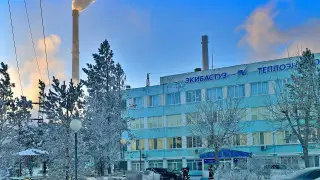Tengrinews.kz – In Ekibastuz, heating engineers have applied for a more than threefold increase in the heat tariff for consumers.
Ekibastuz Thermal Networks LLP purchases heat energy from the local thermal power plant, which is under the trust management of a subsidiary of Samruk-Energo, and then transmits, distributes and supplies heat to consumers. As it turned out at the public hearings, the upcoming increase will hit budget organizations the hardest.
"The tariff increase for ordinary consumers, businesses and others will be 9.8-10%. The main burden today falls on budget organizations. Currently their tariff is 47,701 tenge per gigacalorie, the planned increase is 156,641 tenge, which is a 228% increase," said Anatoly Moisey, head of Ekibastuz Thermal Networks, at the public hearings.
The reasons for the tariff increase include the need to repair worn-out heating mains and an increase in employee salaries.
"We have a high turnover of staff, it is difficult to attract specialists due to low salaries. According to the staff list, we should have 349 people, but the actual number is 218 people. The foremen's salary is 243 thousand tenge, gas welders - 179 thousand tenge, and fitters receive 151-170 thousand tenge," added Anatoly Moisey.
According to him, the new tariff estimate includes 12.8 billion tenge, of which 8.8 billion are expenses for the purchase of thermal energy.
"The average selling tariff for the transmission, distribution and supply of thermal energy will be 16,756 tenge. For normal operations, providing consumers with thermal energy, the enterprise must bear exactly this level of costs. If we continue to work at the current tariff, then in three months of work we will incur about a billion tenge in losses, our enterprise will be on the verge of bankruptcy," he said.
Ekibastuz residents who came to the hearings noted that with the new tariffs, the salaries of production personnel will increase slightly.
"The workers didn't get much of a raise, but the administration almost doubled it. I think if the average is 560 thousand tenge, then your salary is probably a million tenge. You say there's not enough money for repairs, but this year they dug up entire pipes on Abai Street where there wasn't a single rupture. They would have lasted another 5-10 years, but they were replaced with new ones," one of the Ekibastuz residents indignantly said during the public hearings.
During the public hearings, local residents expressed their disagreement with the latest increase in the tariff for heat energy.
One of the listeners was indignant that this was the second time this year that the tariffs were being raised.
Ekibastuz deputy Arman Amurgalinov spoke in defense of budget organizations.
"Last year, budget organizations had a heavy burden, and this year it's 228%. I think it needs to be reduced," he said.
Ekibastuz residents expressed concern that if schools, kindergartens, hospitals and other social facilities are unable to pay for the more expensive heat, the burden will be shifted to other consumers, including city residents.
As reported by the head of the Committee on regulation of natural monopolies in the Pavlodar Region, Nurlan Nurmuratov, the tariffs proposed by heat suppliers will soon be considered by the regional commission.
"I have heard all the comments. Both people and deputies say that 228 percent is a significant increase for the budget. In any case, we will make all decisions taking into account the opinions of residents, deputies, and government agencies," Nurmuratov said.
The last time heat tariffs in Ekibastuz were raised was in February of this year, when the tariff for budget organizations increased from 25,421 to 49,274 tenge per gigacalorie.
Earlier in the corridors of the Mazhilis, the Minister of National Economy Nurlan Baibazarov announced that the rise in utility tariffs in Kazakhstan is planned to be smoothed out with 'long-term' funds. According to the minister, it is necessary to invest in the housing and communal services sector for stable operation.

